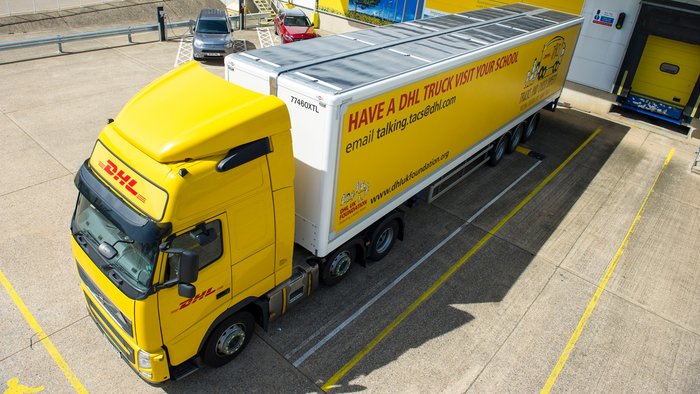DHL has launched two new UK transportation innovations to reduce carbon emissions and the number of vehicles on roads, and to deliver cost savings for customers.
Connected Transport Management System (TMS) is a digital network that connects UK customers to DHL’s whole transportation capability and subcontracted partners, allowing them to utilize DHL’s network regionally or nationally according to their volume requirements.
All customer orders are processed through TMS to allow planners to create the most efficient networks possible from all of the available options. TMS optimizes cost by maximizing the use of existing space, reducing empty miles and carbon emissions.
TMS feeds practical optimized routes to drivers and then tracks their journeys. Customer service teams have real-time status updates, proof of delivery, and live visibility of any challenges that arise, enabling them to find solutions.
By managing all transportation data in one place, DHL can access operational insights for customers, allowing better forecasting and planning. For subcontractors, TMS gives access to work within the DHL network across the UK with minimal administration.
As part of its declared target of zero emissions by 2050, DHL has developed solar transportation solutions that reduce emissions and fuel spend to make its fleet greener, more cost-efficient and urban-friendly.
Working in partnership with Don Bur, DHL is launching Trailar thin film solar mats fitted to vehicle roofs and connected to the vehicle’s battery or additional onboard batteries. The solar energy generated is used to power different onboard activities such as tail lifts, reducing overall fuel consumption.
Trailar can be integrated into trailers and rigid vehicles, reducing CO2 emissions and expense on fuel costs and maintenance.
DHL Supply Chain is actively integrating Trailar across its own and customer UK fleets and will extend the roll-out to third parties from 2019.
Phil Roe, managing director for network logistics and transport at DHL Supply Chain UK and Ireland, said, “Ultimately, we need fewer, cleaner and quieter vehicles on UK roads. This can be achieved while also helping customers reduce their transport costs.
“That’s why we’re committed to developing new sustainable transport solutions that can be rolled out across all supply chains for the benefit of the environment, the public and our customers.”


